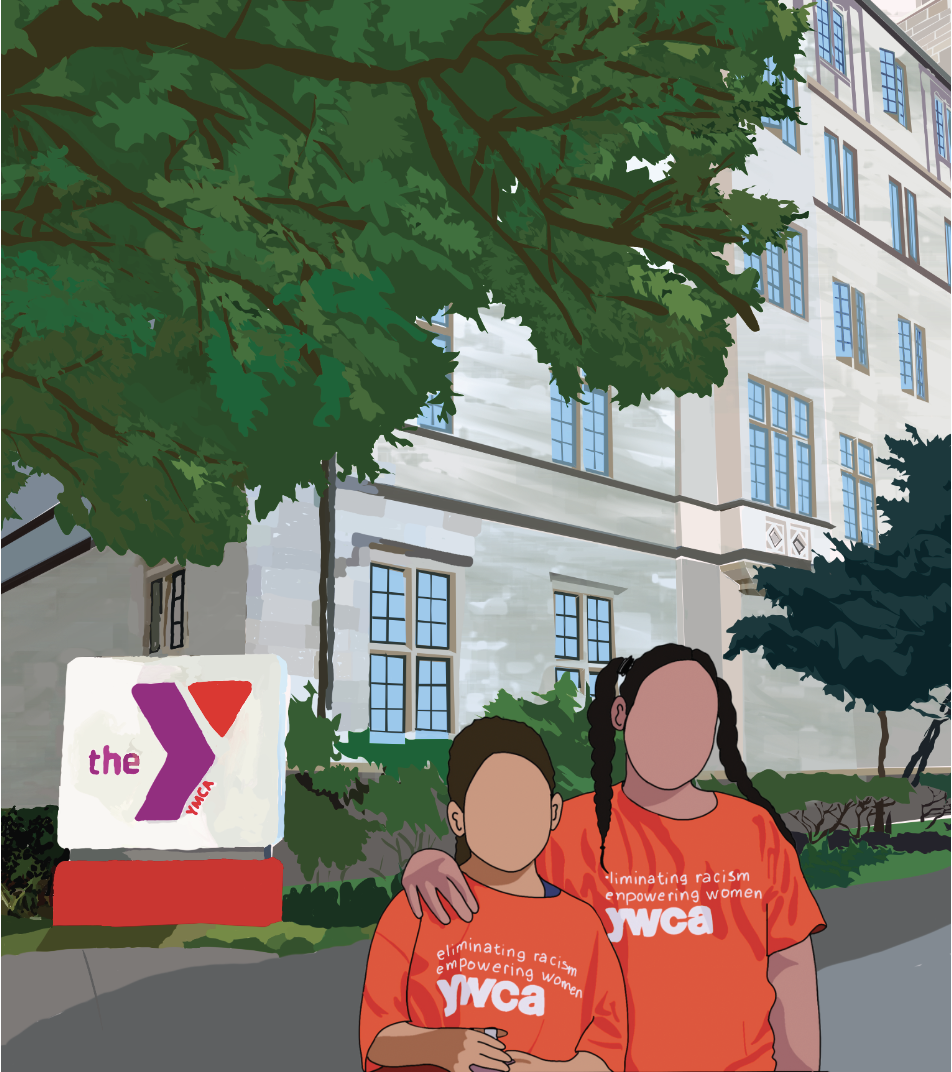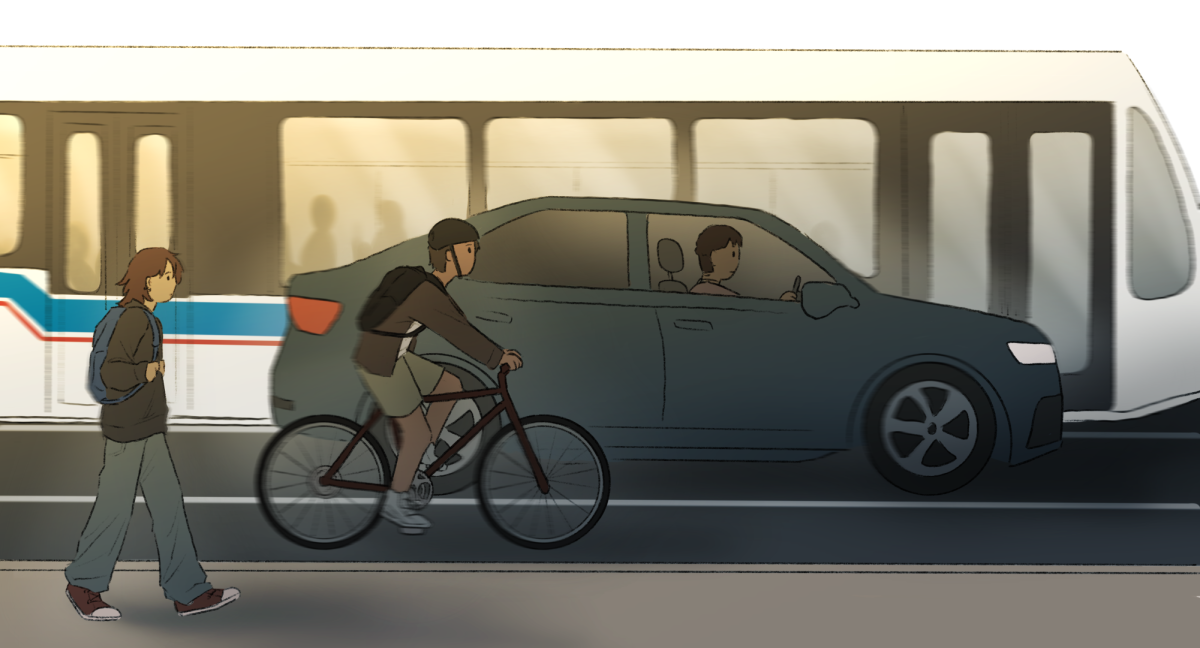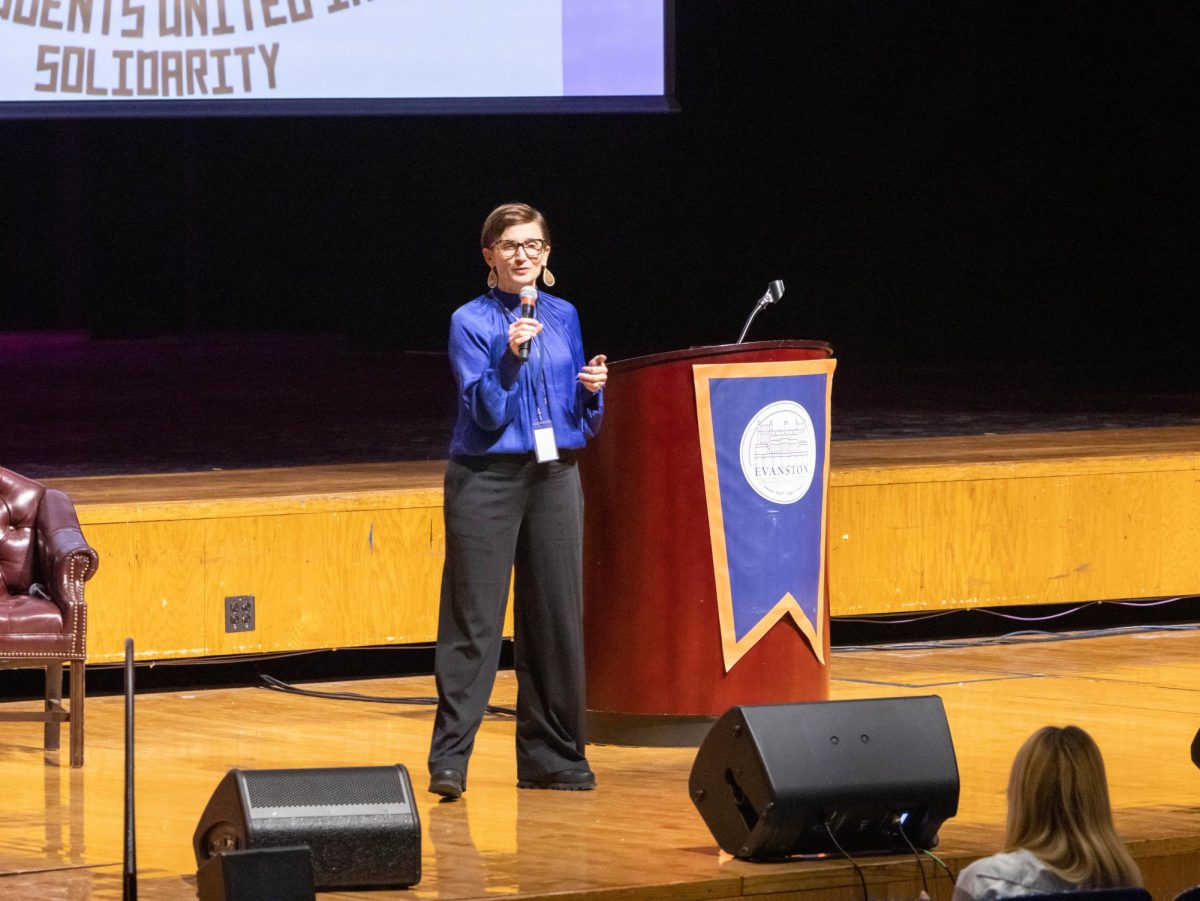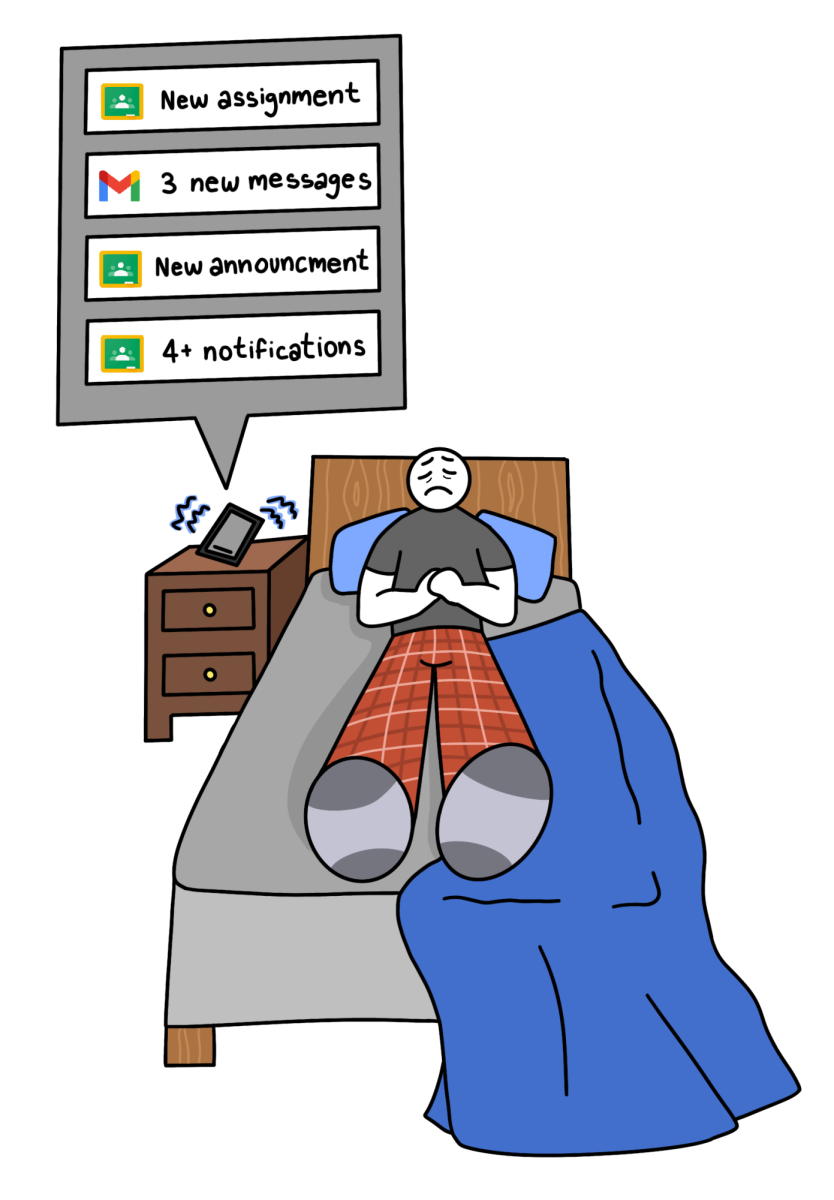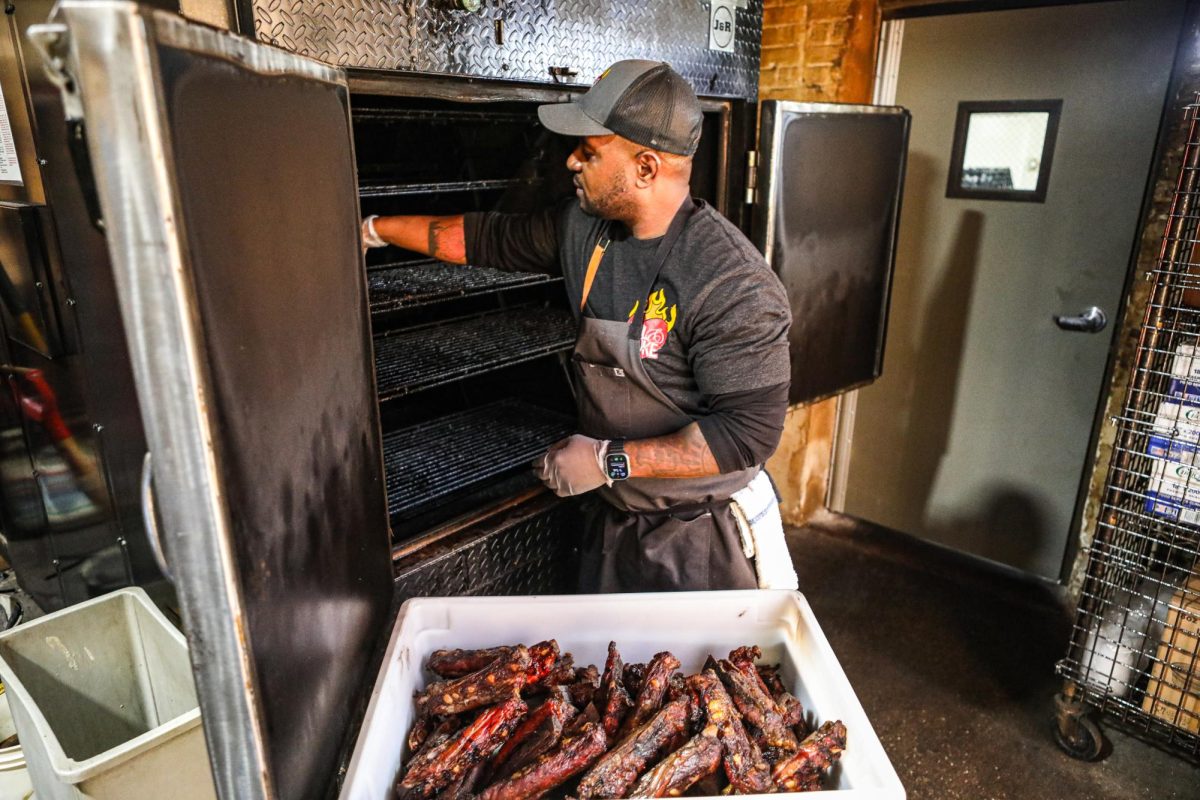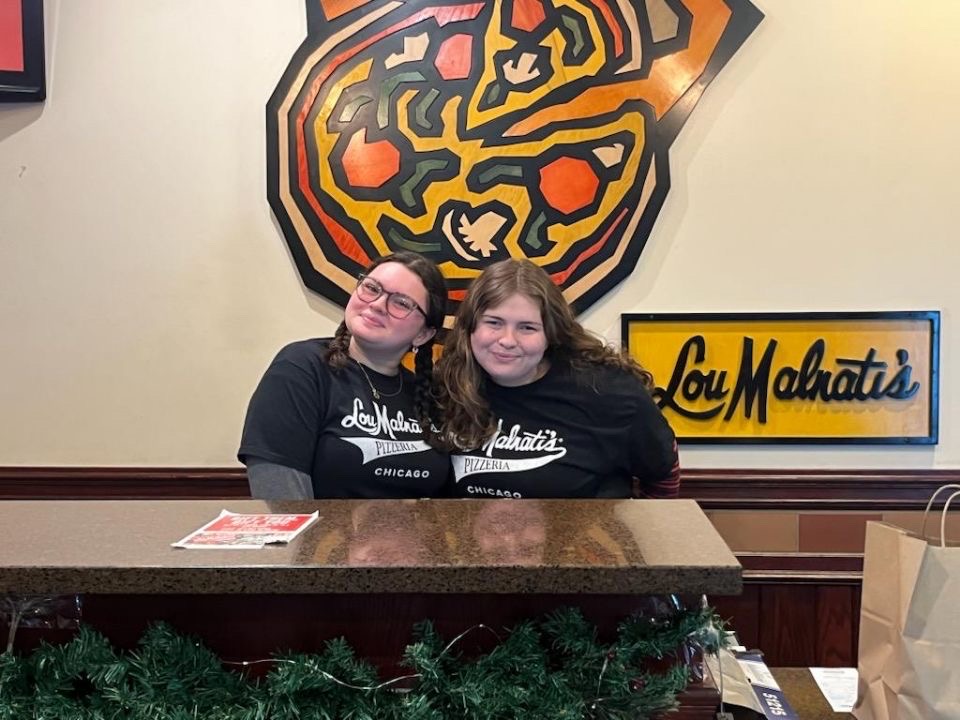Evanston is home to a number of organizations that contribute many services to its citizens, and two of the most notable have almost the same name–the YMCA and the YWCA. Between these establishments, they’re able to reach thousands of people through the programs they offer. Though they may seem similar at first glance, there are many attributes that discern the two groups.
From swimming to shopping, the YWCA provides a wide range of opportunities for the citizens of Evanston—culinary classes, leadership programs, scholarships. Among the over 200 YWCA’s internationally, one of the largest chapters is housed in Evanston, IL. The organization has been around since 1855, with the location in Evanston beginning in 1931.
“It started as a way to provide housing and work and support opportunities for women that didn’t have that at that time. There [were] a lot of women that had left their rural homes in [the] early 20s and 30s to find jobs in the city as the city started to grow and develop. That’s where the YWCA found its roots in Evanston North Shore,” vice president of marketing and communications for the YWCA Erin Venable says.
Venable has been the Vice President of Marketing and Communications at the YWCA Evanston Northshore location for just under two years now. She ensures that people are up to date on events, the programs they offer, as well opportunities that are available. From flyers and brochures to emails and social media, Venable supervises it all.
“The other part of that is the leadership,” Venable says. “In addition to all things Marketing and Communications, I’m also a part of looking at the organization overall, and helping work with the team to make decisions that are in the best interest of the organization—how we operate, what’s working, and what we can improve on.”
While the YWCA began as a center to provide for women, it has since expanded exponentially. It’s become a hub in Evanston, administering numerous opportunities for the citizens through their large variety of programs. The roots of the organization lie in their swim curriculum and their domestic violence shelter, as they were a part of the first aspects of the organization to be implemented in Evanston. The pool was added to the site in 1969, where the domestic violence shelter was integrated in 1983. After that, the Flying Fish Aquatics program was established.
“A lot of people know us [through Flying Fish]. [We had] a lot of people learn how to swim at the YWCA and carry that on to participate in our competitive swim program. And then we just continued to grow from there,” Venable says.
The Violence Prevention Program that the YWCA offers was introduced in the late 90s to early 2000s, with the Race Against Hate being developed soon after to produce direct funding for the violence prevention as well as their racial injustice work. Now, there are over 4,000 people who gather annually for the race. The YWCA continued to grow; within their domestic violence program, they have a newer shelter that opened during COVID, which houses 23 rooms, as well as a long-term housing facility that exists off site in Evanston.
“We do domestic violence training, violence prevention and training in schools. We also have a youth leadership program, as well as a legal advocacy program that’s housed inside of the Skokie courthouse,” Venable adds. “We offer counseling both for survivors that are in our shelter, as well as for residents of the community.”
Through one of their newer curriculums, the Economic Empowerment Program, the YWCA is able to provide even more—workforce in-job training, culinary programs, financial wellness—even an open clinic that’s available every Wednesday where people can drop in, schedule an appointment to get help with their credit, budgeting, finance or student loans. It further extends to their racial injustice program, called Equity Institute, which began in 2011. It consists of workshops, community training opportunities, as well as consulting for businesses, organizations and municipalities around racial injustice.
“Lots of things happen underneath that umbrella, including a monthly series called Let’s Talk at Lunch, where community members are invited to come talk about race and racism and learn to talk through the uncomfortability of that in a safe space,” Venable says.
One of the most notable things the YWCA has in Evanston, though, is their resale shop.
Shop For Good was the first to open in Wilmette, back in 2018, centered mostly around women’s clothing and accessories. In 2020, the YWCA was gifted Crowded Closet in Evanston. Open 5 days a week, the store sells gently used clothing at a discounted rate, with the profits going directly back into funding for the YWCA. Crowded Closet is currently being prepared to introduce some new changes—plans to shift away from the consignment model to a donation only model, as well as the name change to Shop For Good Evanston.
“Both of these changes are going to allow us to better leverage the resources that we have, so that we can make a bigger difference in the community, and the work that we do. [This way] we can kind of streamline things a little bit,” Venable says. “It’s hard to promote two different things and talk about two different stores–people are like ‘what’s where?’ This way we’ll be able to say, ‘Stop at one of our shops. We have one in Evanston and one in Wilmette.’”
With the YWCA’s assortment of programs, events, and even clothing stores, they are able to provide the Evanston community and beyond safe spaces to learn and to find support. Through swim teams, the domestic violence shelter, and anything else they offer that aligns with those programs, the YWCA is able to reach all sorts of people who can benefit from the opportunities they extend.
“[We aim] for people to know that there’s a place for them at the YW[CA], no matter what that looks like,” Venable says. “Even though you might have come into the program as a Flying Fish, the moment after you walk in that door, you’re aware of all the things that we’re doing.”
And just a few streets away from the YWCA, the YMCA stands—with its own aquatics program, numerous child care services, and even residence. This particular location took root in Evanston 138 years ago, in 1885, though their current building has been in place since 1898. The initial architecture is the same, despite an addition of another swimming pool and a gym.
Monique Parsons is the current President and CEO of the McGaw YMCA, and has held her role for the last five years, though she began working at the YMCA 2 decades ago. Being born and raised in Evanston, she had always been familiar with the YMCA, but only became a part of the organization later in her life.
“I wasn’t a YMCA kid,” she says. “And that was because, during the time that my family grew up in Evanston, this YMCA wasn’t always the most welcoming place for people of color—especially black people in our community. There were other places that my mother allowed us to go [but] the YMCA, unfortunately, was not that place.”
The YMCA wasn’t always the community it is today. Until 1969, two YMCA’s existed in Evanston—it was segregated, with the second location being on Emerson Street, a once thriving community for people of color. Like the current YMCA building, the Emerson YMCA had several floors of men’s residency. Northwestern students of color lived in the building, the first black mayor of Evanston, Former Mayor Morton, took swim lessons there, and thousands of other people of color were provided opportunities they wouldn’t have otherwise had access to.
“While we were, during that time, very segregated, [we were] very progressive, in knowing and recognizing what certain people in our community needed. The fact that you have this YMCA, although separate, saying ‘We should be able to create another space for black people in Evanston to do what we’re doing here.’”
But now, the YMCA is open to everyone, regardless of ethnicity, identity, background and income, with services offered to anyone who may need them. Though she hadn’t been able to take advantage of them in her adolescent years, learning about everything the YMCA provided to the community compelled Parsons to step into her role within the organization.
“When I realized how wonderful the opportunities were here, I knew at that moment [that] I wanted to be a part of every young person and family in our community, no matter where they lived or what resources they had to take part in. That was my mission,” Parsons says.
One of their most well-known programs is the camp that the YMCA offers in Fremont, Michigan—Camp Echo. Hundreds of kids of all ages, high schoolers and college students alike, are able to experience living away from home, learning new skills, and cultivating relationships in a new environment.
“We could have focused just on childcare, we could have focused just on health and wellness, but we stay[ed] committed to what our community needed. And that hasn’t changed,” Parsons says.
One of the other major services the YMCA provides is their child care programs. With their intensive services, the YMCA is able to aid over 200 children everyday, through their day camp and their after school curricula, starting from infancy all the way through middle school. Their child care building is located on Maple Avenue, and is one of the biggest in Cook County. Many citizens are familiar with the YMCA through their child care, for they’re able to continue utilizing the services the YMCA offers for many years after.
“It was actually the daycare center that drew us to [the YMCA] initially,” Evanston resident and longtime member at the YMCA, Katherine Harris, says. “I started looking around at daycare centers, and I absolutely fell in love with the one at McGaw. It was just so clean and well run and [had] so many different families, a huge cross section. Here’s tons of people from all over the Evanston community—it had such a warm and welcoming feeling that I put [my daughter’s] name on the list and joined the Y[MCA] anyway, [because] I figured if the Children’s Center was that great, then the main Y must be too.”
In the main building, they have everything from swimming pools to housing, the number of residents exceeding over 150. They have their fitness facilities, with group exercise classes, swim lessons, private lessons, open swim, the swim team (MYST), and spaces for other sports as well—volleyball, basketball, pickleball. They host community events like Family Fest, as well as programs for all ages, from newborn age to post retirement. No matter what your background looks like, how old you are, or where you come from, the YMCA aims to have a space for you within their community.
“It’s our greatest opportunity to fill in the gaps that are needed or missing in the community. But it is also our greatest challenge,” Parsons says. “We live in a community like Evanston where you have such a diverse group of individuals, those that have resources and those that don’t. And so it is our responsibility to make sure that we are intentional about providing opportunities and experiences to everyone in this community.”
Through the work of these organizations, they’re able to provide spaces for the citizens of Evanston to swim in, to live in, and overall enhance the community—few cities can say that they’re home to both. They’ve become vital to Evanston—in equally important yet varied ways—even if, at a surface level, there’s only a letter that differentiates the two.




